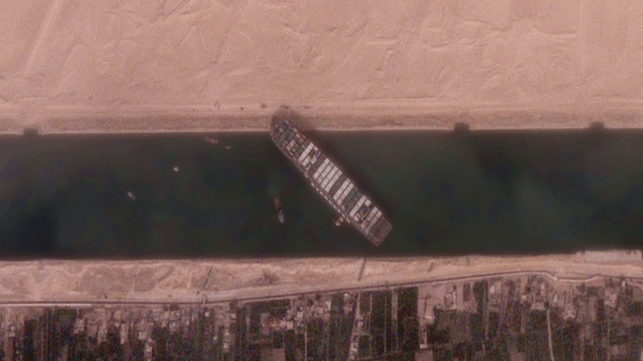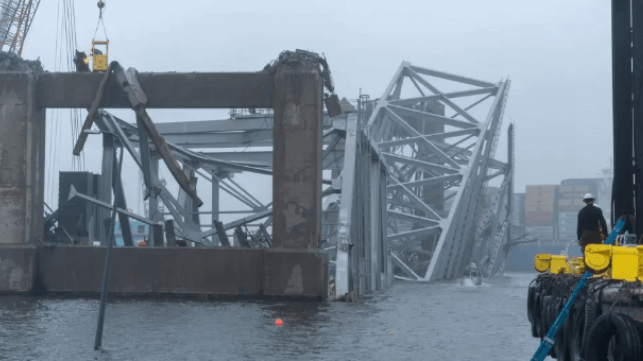The Ever Given Shows the Unique Nature of Salvage in Contract Law

The Court of Appeal decision in Smit Salvage BV & Ors v Luster Maritime SA & Anr (The ‘Ever Given’) highlights the challenges of negotiating contracts in rapidly changing environments, particularly in cases involving maritime casualties. Attempting to finalize a contract amidst such fluid circumstances can lead to uncertainties and legal disputes, as demonstrated in this case.
The judgment underscores the widely recognized appropriateness of the Lloyd's Open Form (LOF) in situations of maritime risk. Smit, the salvor, initially proposed utilizing LOF but was open to promptly entering into a commercial contract to regulate their position. However, the contract was never actually agreed.
Despite the absence of a formal contract, Smit proceeded with salvage operations after the Suez Canal Authority's (SCA) earlier attempts had failed. By salvaging and refloating the vessel, Smit provided a service to the owners without a “contract” of any description but under common law salvage provisions. The legal action initiated thereafter could be viewed as a distraction from the essential service rendered in salvaging the ship.
The judgment leaves open the question of what the court will ultimately award for the services provided. These considerations will be based on principles outlined in Article 13 of the Salvage Convention. While the specifics of the award remain to be determined, it is anticipated to align with established international salvage principles.”
Main points of the judgement
“The issue addressed by the courts was not primarily about the salvage operation itself, but rather about the principles of offer and acceptance in contract law. Despite the salvage context, the legal dispute primarily revolved around the formation of a binding contract.
The judgment underscores the unique nature of salvage operations, where assistance is rendered to vessels in distress without the presence of a pre-existing contract. This highlights the distinction between salvage, which is based on the principle of rendering assistance in emergencies, and contractual agreements, which require formal offer, acceptance, and consideration.
While LOF confirms that the services provided under it are salvage in nature, Wreck Hire contracts, by contrast, are essentially agreements not to provide salvage services. SCOPIC (the Special Compensation P&I Clause) assists with the global negotiation of such contracts by providing a ready-made set of rates for personnel and equipment. Such rates need no longer be negotiated other than by way of % uplift.
The judges all confirmed that on analysis of the exchanges, the offers by SMIT were all offers requiring agreement on more terms than just remuneration. The main terms of their offers included detail on nature of services, standard of care and payment terms. The court found that the owners did not confirm these terms explicitly at any stage.
Despite SMIT's repeated offers, the owners rejected them on multiple occasions. SMIT, in response, emphasised their willingness to proceed promptly under agreed terms, or alternatively revert to LOF terms. The sequence of correspondence demonstrates SMIT's efforts to establish a clear contractual arrangement and the continuing nature of such discussions.
Ultimately, the courts concluded that based on the written exchanges, the owners failed to demonstrate an unequivocal intention to be bound by the terms proposed by SMIT. This finding underscores the importance of clear and unambiguous communication in contract formation, particularly in complex and evolving situations such as salvage operations.”
Richard Gunn is the leading partner in Reed Smith’s Casualty and Admiralty team.
The opinions expressed herein are the author's and not necessarily those of The Maritime Executive.
The Dali & Ever Given: General Average and Salvage in Ocean Freight

The owner of the Dali, the massive cargo ship that lost power and knocked down the Key Bridge on March 26, killing six men, has declared “general average,” according to Darrell Wilson, a spokesperson for the ship’s owner, Grace Ocean Private Ltd[1]. The incident has cost Baltimore the loss of a key bridge and massive disruption to the US supply chain. For the cargo on board, the cargo owners face the prospect of massive additional costs as a consequence of the declaration of general average[2].
Another seminal incident was the grounding of the large container vessel Ever Given within the Suez Canal while transiting the Suez Canal on March 23, 2021, lodging herself against both banks of the waterway. The blockage caused vessels to back up in the Mediterranean to the north and the Red Sea to the south[3]. Before the incident, the vessel sailed from the Malaysian port of Tanjung Pelepas. Not only did the incident expose the fragility of the shipping routes, it also demonstrated the principles of the law of salvage, in relation to the salvors' claim in freeing the vessel. Similarly, the cargo owners had to pay higher additional costs because of the salvage.
There are some principles of maritime law that have no equivalent under normal contract law or land or air carriage. Situations like general average and salvage may arise during the maritime adventure and parties involved eg shipowner, cargo owner and charterer will need to be aware as when situations of general average or salvage occur they impact parties and their property.
Do cargo owners need to contribute to general average charges if the incident was the fault of the Dali? The short answer is yes, because of the New Jason Clause invariably found the contract of carriage with owners of the Dali. The default position under US law is that an owner is not entitled to the contribution from cargo when the event is caused by the owner’s or his agent’s fault or neglect. This is so even if US COGSA applies to the voyage and the neglect or fault constitutes a defense under COGSA[4].The incorporation of a New Jason Clause in the contract of carriage changes this default rule.
GENERAL AVERAGE
General average is part of the law of the sea founded on equity. It formed part of the Rhodian law, was based in earlier custom and existed many centuries before the existence of marine insurance. ‘General average’ is ‘all loss which arises in consequence of extraordinary sacrifices made or expenses incurred for the preservation of the ship and cargo losses within general average, and must be borne proportionately by all who are interested[5].
Salvage
Salvage has been defined as a service which confers a benefit by saving or helping to save a recognized subject of salvage when in danger from which it cannot be extricated unaided, if and so far as the rendering of such service is voluntary in the sense of being attributable neither to a pre-existing obligation, nor solely for the interests of the salvor [6].
Ever Given and the Suez Canal
In March 2021, the large container vessel the Ever Given ran aground while transiting the Suez Canal on March 23, 2021, lodging herself against both banks of the waterway. The blockage caused vessels backed up in the Mediterranean and the Red [7].
The owners of the Ever Given had declared General Average. This meant that the costs of refloating and salvage of the ship is passed on the cargo owners on board on rateable proportion, depending of the value of each cargo owner’s cargo.
The claims of the salvors for the refloating of the vessel and freeing it from the Suez Canal was eventually brought to the English Courts and was decided by the Court of Appeal in the case of SMIT Salvage BV & others -v- Luster Maritime S.A. & another (Ever Given – salvage claim)[8]
The Court of Appeal held that the decision to fix additional tugs after remuneration was agreed was not made because of contractual certainty, but in response to the failure of the refloating attempt of 26 March 2021, which put the Respondents in a strong commercial position, giving them a reasonable expectation of a salvage award, if the parties did not conclude a contract. As the salvage remuneration is not limited by the agreement of the parties, the salvor claims for more than pursuant to a negotiated services agreement for the same operation.
In General Average and Salvage situations, the carrier has a right to lien the cargo. Where the cargo is insured under the usual ICC Clauses both the bond and the final amount of general average and salvage is covered under the insurance policy.
Philip Teoh is an International Maritime Lawyer and Arbitrator and practices in the Malaysian law firm of Azmi & Associates. He is a regular contributor to the Maritime Executive.
[1] Dali’s owner declares ‘general average’ in Key Bridge disaster. What does that mean? Baltimore Sun 18 April 2024 : https://www.baltimoresun.com/2024/04/17/key-bridge-dali-general-average/
[2] See Dali cargo owners face massive costs if general average is declared. Loadstar : https://theloadstar.com/dali-cargo-owners-face-massive-costs-if-general-average-is-declared/
[3] See the articles in the Maritime Executive : Ever Given – What Happens Now? At https://www.maritime-executive.com/editorials/ever-given-what-happens-now and Ever Given: Legal and Insurance Implications, Maritime Executive at https://maritime-executive.com/editorials/ever-given-legal-and-insurance-implications
[4] Like Hague and Hague-Visby, US COGSA exonerates the ship and carrier from liability for loss or damage resulting from an error in navigation or management of the ship or from unseaworthiness when the owner/carrier has exercised due diligence to make the vessel seaworthy. Carriage of Goods by Sea Act (COGSA) § 4, reprinted in 46 U.S.C. § 30701
[5] Birkley v Presgrave(1801) 1 East 220 at 228 per Lawrence J.
[6] Kennedy & Rose, Law of Salvage, 6th edition, published by Sweet & Maxwell 2002
[7] See the articles in the Maritime Executive : Ever Given – What Happens Now? At https://www.maritime-executive.com/editorials/ever-given-what-happens-now and Ever Given: Legal and Insurance Implications, Maritime Executive at https://maritime-executive.com/editorials/ever-given-legal-and-insurance-implications
[8] [2024] EWCA Civ 260, see also the Hill Dickinson Case Commentary at https://www.hilldickinson.com/insights/articles/court-appeal-agrees-no-binding-salvage-contract-concluded
The opinions expressed herein are the author's and not necessarily those of The Maritime Executive.
No comments:
Post a Comment